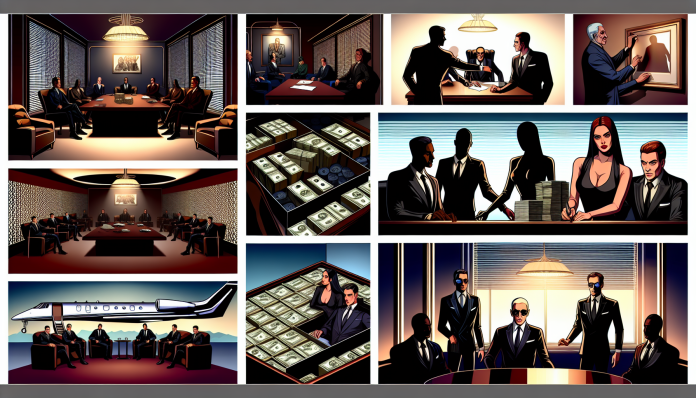Introduction: The Sordid Tales of Power and Lust
Hollywood has long been a playground for the powerful and influential, a place where the bright lights of fame can often dim the moral compass. This intertwining of glamour and scandal is epitomized by the affairs of key figures within the industry, notably relationships that blurred the lines of power, ambition, and societal norms. One of the most infamous couples was the affair between actress Elizabeth Taylor and Senator John F. Kennedy. Spanning the late 1950s into the early 1960s, their liaison not only scandalized the entertainment industry but also offered a peek into the social mores of the time, which were often hypocritical regarding issues of morality and fidelity.
The Scandal: Love in the Shadows
The scandal began to unfold in 1958, when the burgeoning actress Elizabeth Taylor was entering a dramatic phase of her life. Fresh off a string of successful films, she found herself drawn to the charismatic and powerful Kennedy, who was then a rising political star. Their relationship became a hot topic of gossip, as a married senator engaging in an affair with a Hollywood icon mixed notions of celebrity culture, political ambition, and personal morality.
Key events included secret rendezvous in hotel suites and a very public flirtation at a dinner party, which only intensified rumors. Journalist Joseph Alsop is reported to have remarked, “Kennedy and Taylor, two souls destined for destruction, one with a smirk and the other with a sultry smile.” The secrecy surrounding their affair was embedded in the culture of the time, where the press and public would often turn a blind eye to the private lives of the rich and famous—so long as the façade of respectability remained intact.
Moral and Cultural Analysis: Changing Perceptions
Society’s reaction to Taylor and Kennedy was a potent mixture of scandalous intrigue and hypocritical acceptance. Elite circles largely condemned the affair; however, many fans continued to idolize Taylor, viewing her as a tragic figure trapped within a loveless marriage. Conversely, Kennedy’s charm and political ambition allowed him to escape any substantial consequences, with the press often downplaying his indiscretions in favor of his rising political star.
- Consequences:
- For Taylor: Despite the criticisms, her career flourished and she became one of Hollywood’s most beloved actresses. Public sentiment often swayed in her favor due to her vulnerability and talent.
- For Kennedy: His reputation remained largely untarnished during the affair, illustrating a double standard; his political aspirations overshadowed the potential fallout from his love life.
Fast forward to today, such an affair would be met with a different lens. In an era of the #MeToo movement and heightened scrutiny of sexual ethics, the public’s reaction would likely not be as forgiving. Social media would amplify outrage, often leading to a much quicker response from both the public and political circles. Celebrities are now held to higher standards of accountability, and affairs—especially those involving power imbalances—are scrutinized more than ever before.
In comparison, during the late 1950s, a society grappling with the post-war conservatism and the impending sexual revolution often viewed such affairs as fodder for gossip, rather than serious moral failings.
Thus, Taylor and Kennedy’s liaison serves as a historical touchstone, illuminating how far societal attitudes toward love, power, and scandal have evolved over the decades. It reflects not only the tumultuous intersection of Hollywood and politics but also the varying degrees of scrutiny placed on figures who occupy both realms.

